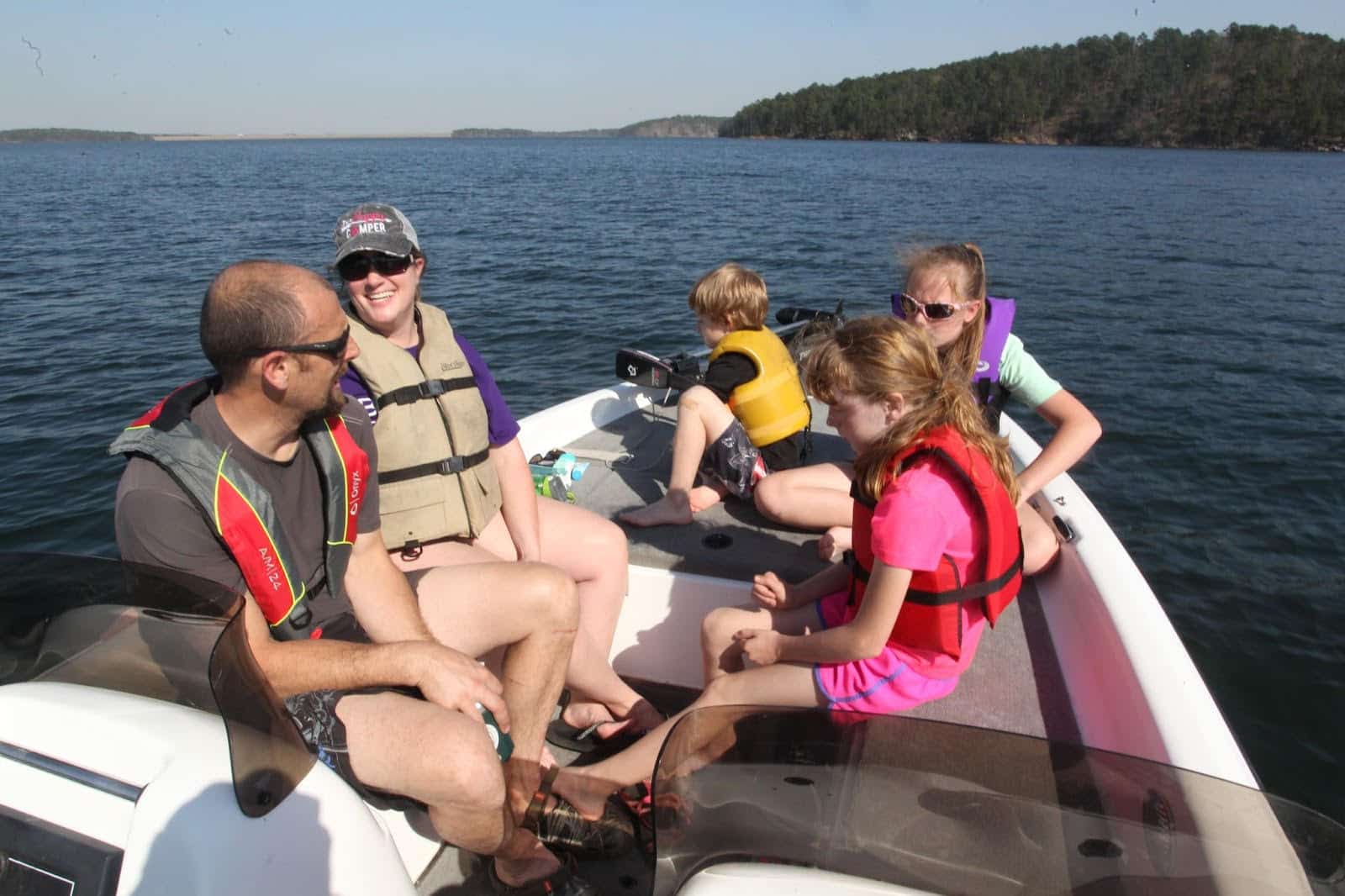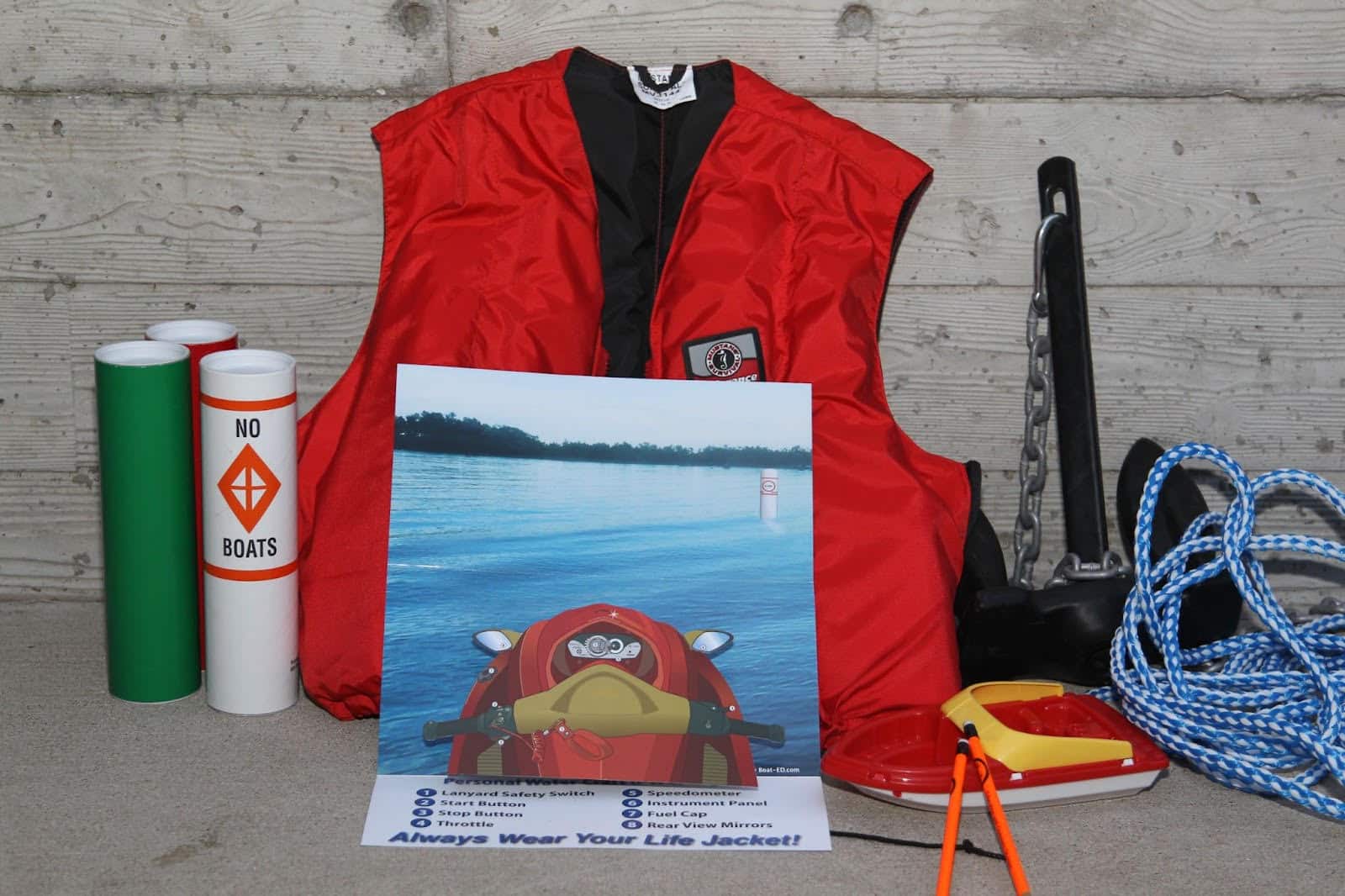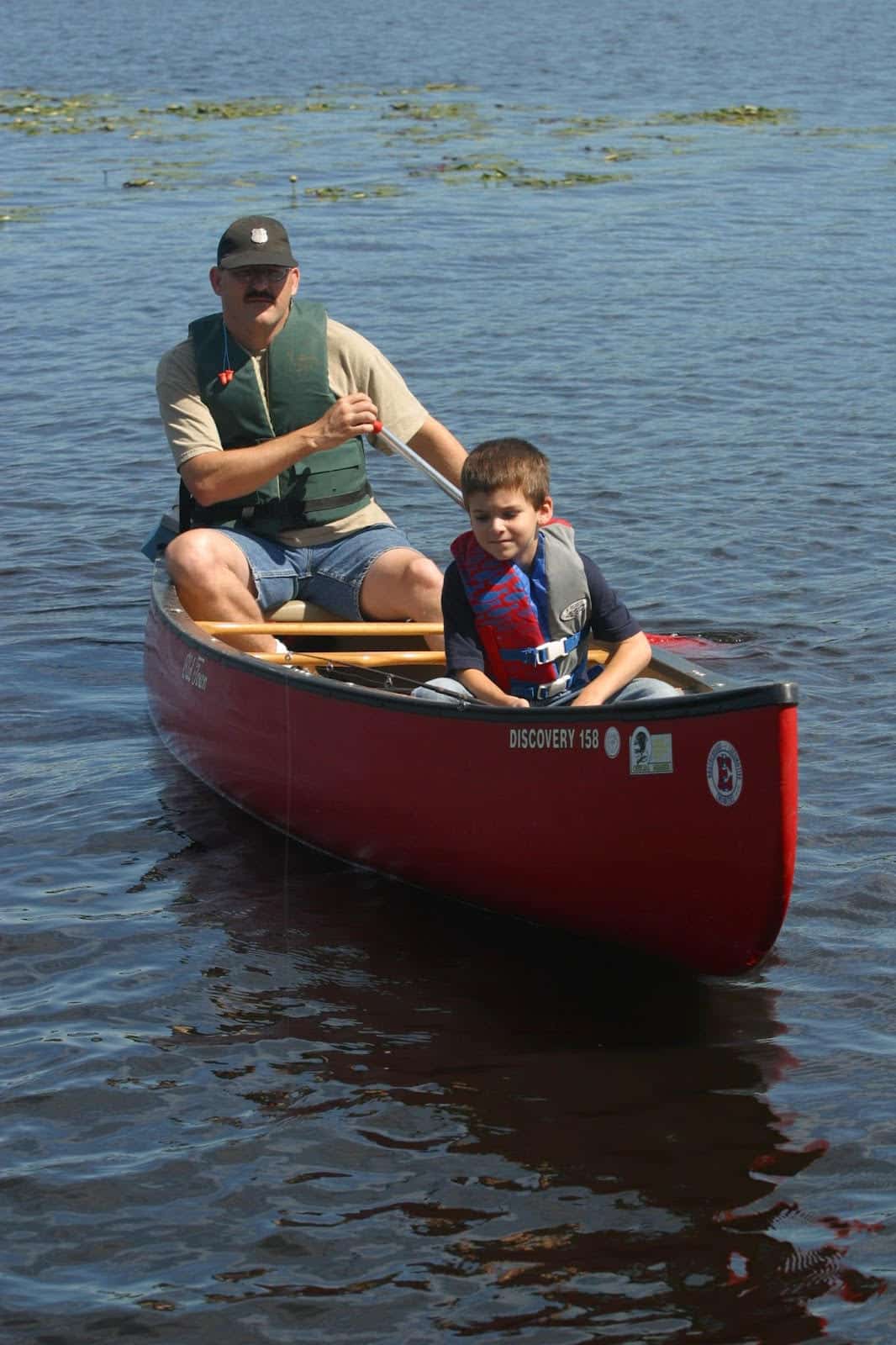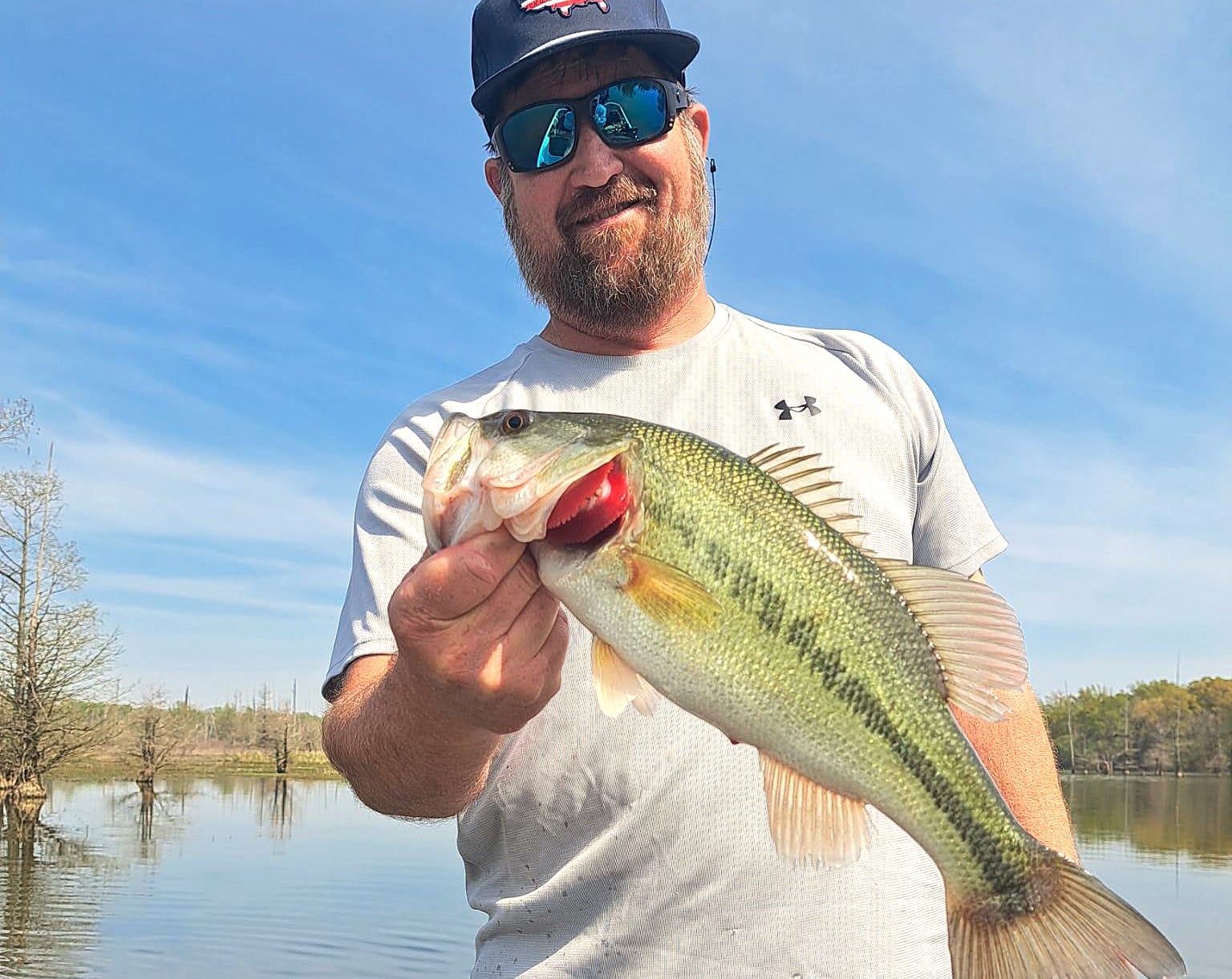Boater Education emphasis for National Safe Boating Week
BY Jim Harris
ON 05-15-2024

The COVID-19 pandemic, and orders from health care officials to socially distance from others to limit spread of the virus, sent many people socially distancing on the lakes of Arkansas four years ago. Boating use increased during the summer of 2020 and has remained higher than pre-2020 numbers; it’s no coincidence that boating accidents have been on the uptick since more people took up boating.
During National Safe Boating Week, which begins Saturday, May 18, and runs through Friday, May 24, the Arkansas Game and Fish Commission will emphasize — not only this week but through the summer — safe boating by users of the water resources around The Natural State, and a strong emphasis will be on boater education, according to Stephanie Weatherington, the AGFC’s boating law administrator.

The first law that needs heeding is wearing a life jacket and the boat operator making sure he or she has enough life jackets on board, including life jackets that are the proper size for boat passengers.
“I hate to be a broken record, but our boat accident statistics don’t lie,” Weatherington said. “It’s almost the same every year: people not wearing their life jackets. Granted, if they are over 12 they don’t have to wear one, but it’s not the kids that are drowning. It’s the adults. They get in a boat accident, they don’t have a life jacket and they drown.
“We really try to strive to put out the message: Wear a life jacket. They have inflatables now that are super comfortable. There’s no reason not to wear a life jacket nowadays.”
The use of cell phones, a factor in increased automobile accidents, plays a part in some boating mishaps now, too, Weatherington notes. It’s a trend she and the AGFC Enforcement Division, as well as the U.S. Coast Guard, have been seeing the past couple of years.
“Distracted boat operation. It’s exactly what you think in a vehicle,” she said. “Those people are looking at their phones, texting, and not paying attention to where they’re going and they run into stuff.
“We just had an accident (in late March) on a lake. They were on their phone. They got lucky. They managed to hit a dock, but thank goodness they went in between the two stabilizer poles. We’re seeing a lot of that (distracted boating).”
National Safe Boating Week prompts more media pushes nationally for boaters and boat riders to be more aware. Weatherington says the AGFC will work with the Coast Guard Auxiliary, Arkansas State Parks, the Army Corps of Engineers and the Arkansas Governor’s Office to get the word out.

This also gives Weatherington and the AGFC an opportunity to push heightened awareness among boat operators by having them take a Boating Education Course, even if they fall outside the age requirement of needing it. Anyone born before Jan. 1, 1986, isn’t required to have a boater education card. Anyone born on or after that day, and of legal age to operate a motorboat or sailboat, must have completed an approved AGFC Boating Education Course and carry proof while operating a motorboat or sailboat on Arkansas water.
“Especially, when the pandemic hit in 2020, it was great for boating in one aspect because everybody was at home, they were cooped up. Well, they realized they could still go out and social distance, they could go fishing, they could go boating. So they’d go to Walmart, buy a kayak or cheaper kind of boat, or they could go buy a bigger boat. We had 1,000s of new boaters that had never been on the water before but they went and got themselves a boat.”
Unfortunately, the number of boat accidents rose too, she said.
“We had a lot more accidents. Nationwide it spiked,” she said. “Now we’re trying to get those new boaters from back in 2020 … they’re realizing — ‘Yeah, I’ve crashed my boat a couple of times, or I’ve found myself in some sticky situations — maybe I ought to take a boating class.’
“We’re trying to target more of the middle-aged folks, the late 30s to early 60s, and let them know, ‘Hey, this a couple of hours of your life if you do it online, or six hours if you take a classroom course. It will be good information for you, you’ll come out more knowledgeable, a much safer boater if you just take a boater education course.”
There are two ways to take boater education online: The Original Arkansas Boater Education Course is $34.95 and available at https://www.boat-ed.com/
A more “gamer” style course is available online, for $49.50, at https://www.ilearntoboat.com/
A free, instructor-led boater education class, the traditional method for boater education, lasts a couple of hours each night for three to four nights, or on a full Saturday, culminating with a test to pass the course. Find a scheduled class and sign up here: https://register-ed.com/
Weatherington, who is retiring from the AGFC in the fall after 29 years at the agency in enforcement, will have another big project upcoming, Operation Dry Water,a national campaign centered around the Fourth of July 4 weekend and targets people operating a boat while intoxicated.

Along with taking a boating safety course, wearing a life jacket and avoiding alcohol while operating a boat, the National Safe Boating Council recommends these tips for boaters:
-
Check equipment. Schedule a free vessel safety check with local U.S. Coast Guard Auxiliary or U.S. Power Squadrons to make sure all essential equipment is present, working and in good condition.
-
Make a float plan. Always let someone on shore know the trip itinerary, including operator and passenger information, boat type and registration, and communication equipment on board before you leave the dock.
-
Use an engine cut-off switch – it’s the law. An engine cut-off switch is a proven safety device to stop a powerboat engine should the operator unexpectedly fall overboard.
-
Watch the weather. Always check the forecast before departing on the water and frequently during the excursion.
-
Know what’s going on around you at all times. Nearly a quarter of all reported boating incidents in 2022 were caused by operator inattention or improper lookout.
-
Know where you’re going and travel at safe speeds. Be familiar with the area, local boating speed zones, and always travel at a safe speed.
-
Keep in touch. Have more than one communication device that works when wet. VHF radios, emergency locator beacons, satellite phones, and cell phones can all be important devices in an emergency.
The National Safe Boating Campaign is produced under a grant from the Sport Fish Restoration and Boating Trust Fund and administered by the U.S. Coast Guard. The campaign offers a variety of free and paid resources to support local boating safety education efforts. Learn more at www.safeboatingcampaign.com.
####
CUTLINES:
BANNER
Boater education, not using alcohol while operating, all passengers wearing life jackets and the driver having a mandatory kill switch are just some of the points of emphasis of National Safe Boating Week beginning Saturday and running through Friday, May 24.
FULL BOAT
Children 12 and under must wear a life jacket, but as National Safe Boating Week emphasizes, drowning fatalities happen more with adults not wearing one. Just because the law doesn’t require it, adults should consider wearing one, and boats must have enough life jackets for all passengers.
LIFE JACKET
Boater Education classes, especially for boaters who may be exempt by age from needing a Boater Ed card, can still be a benefit for all users of the state’s waters.
CANOE
Safe boating includes the safe operation of canoes and kayaks, and life jackets are important to keep all riders safe.
Recent News
Subscribe to Our Weekly Newsletter E-mails
Don’t miss another issue. Sign up now to receive the AGFC Wildlife Weekly Newsletter in your mailbox every Wednesday afternoon (Waterfowl Reports are published weekly during waterfowl season and periodically outside the season). Fishing Reports arrive on Thursdays. Fill in the following fields and hit submit. Thanks, and welcome!


